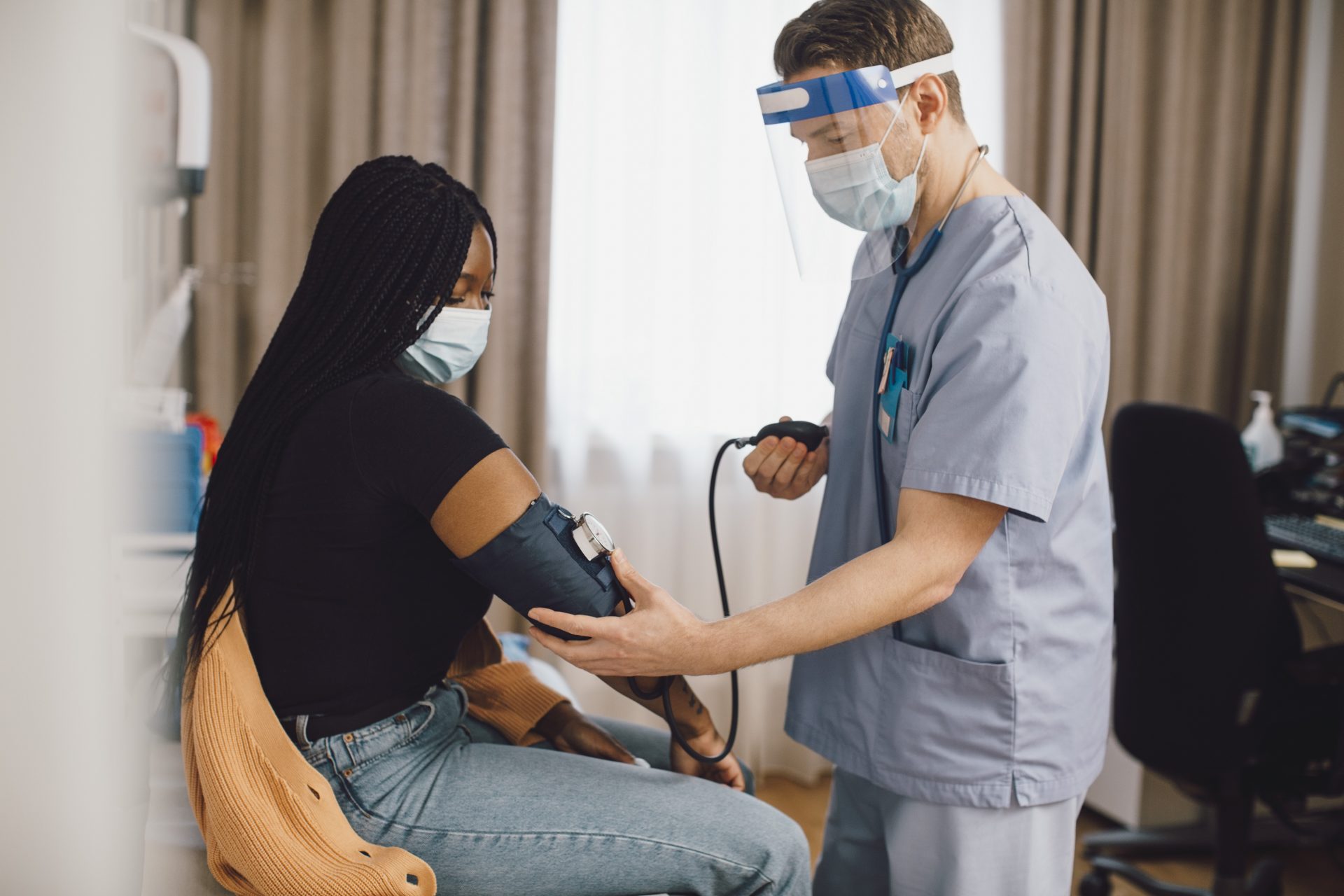After experiencing vasovagal syncope, writer Hannah Bradfield spoke to a cardiologist to find out what the condition entails, why it happened, what to do (and not to do) when somebody faints – and how stress can manifest physically.
On one particularly gross Sunday morning, despite the relentless rain and a subpar night’s sleep, I dragged myself out running with my dad. I’d run my first 10K race the week before, I was enjoying it, and it was helping me to deal with grief.
So I laced up my trainers, plugged in a playlist and set off. The first couple of kilometres were good – other than trying to keep up with my overly competitive dad, I felt alright.
However, as we both slowed down just before some traffic lights, I started to feel a bit funny. I’d never fainted before, but the next moment – just as James Morrison broke into the chorus of You Give Me Something – I was lying on the pavement with a missing AirPod, a bumped head and my dad and a scared-looking old lady peering over me.
You may also like
Running for stress relief: are you running to escape intrusive thoughts rather than dealing with them?
It was terrifying. I was only unconscious momentarily, but in the immediate aftermath, I wasn’t sure what had happened. The traffic sounded alarmingly close and, despite the AirPod casualty, James Morrison was still singing to me. My dad tried to get me up off the floor immediately (which, although understandable, really isn’t what you’re supposed to do in that situation).
So, what had happened?
After going to A&E (because I’d bumped my head), my ECG was normal. I was told that I’d experienced a “benign vasovagal syncope” and was advised to go home to rest.
Dr Boon Lim is a world-leading consultant cardiologist and expert in syncope and arrhythmia. He’s also the author of Penguin Life Expert book, Keeping Your Heart Healthy. When I tell him my story, he’s quick to confirm that I didn’t faint while moving, which can signal a more serious cardiac issue.
A scientific study of collapsed ultramarathon runners found that 85% of runners collapsed after the finish line, and that runners collapsing during a race are more likely to have a readily identifiable medical condition.
Fainting and exercise – what’s the link?
What is vasovagal syncope?
Dr Lim tells Stylist that my first mistake was stopping at the lights. Going suddenly from a state of working out, with muscles pumping, to sudden immobilisation of my lower limb muscles caused me to “pull blood completely down” to my lower limbs, manifesting the reflex “post-exercise vasovagal syncope”.
Essentially, this is when your blood pressure falls, “and your heart rate can also reduce because as the blood pressure falls, this becomes a stress trigger,” Dr Lim says.
“The body doesn’t like any anxiety, pain, or the feeling of low blood pressure, and when the low blood pressure feeling sets in, you get into a freeze mode,” he adds. This then activates the vagus nerve (the main nerves of your parasympathetic nervous system, which controls involuntary body functions like digestion, heart rate and the immune system).

When you’re in “freeze mode”, your blood pressure plummets and you can’t maintain consciousness. Your body, Dr Lim says, “doesn’t want you to continue standing and continue to under-perfuse your brain – it wants you to be lying flat” so the blood that’s pooling in your vessels can return to the heart.
According to the NHS, around 40% of people will experience vasovagal syncope at some point. I was annoyed my dad didn’t catch me – but even if he did, Lim says, the first thing he should’ve done was lay me on the floor, elevating my legs.
If you try to get someone on their feet too quickly, blood pressure plummets yet further, risking a reflex anoxic seizure. This is a secondary seizure, like a convulsion which can happen “if the brain doesn’t get perfused by enough blood pressure for any length of time,” Dr Lim says.
Fainting can be extremely helpful as “it gets you down in a horizontal position so you’re not having to fight gravity”. If you feel faint, you should sit or lie down immediately – wherever you are.
Does physical and mental stress cause fainting?
Following some quick research, I thought I’d fainted due to psychological stress. After speaking to Dr Lim, however, it became clear that my issue was caused by physical stress – namely stopping running too quickly.
However, Dr Lim explains that chronic stress may have had an indirect impact. Imagine that your body battery is a bit lower than it ought to be. Chronic stress, he explains, might cause you to sleep less, not eat or drink enough, or rest well. “The body doesn’t quite recover… and if you’re not resting enough, then your body becomes susceptible to vasovagal syncope.”
Acute versus chronic stress (and how they both impact the body)
Dr Lim explains that acute stress (the more intense, temporary kind) helps us react to our environment, “like running across the road when we see an impending juggernaut truck coming towards us”. Typically, “the moment you cross the road, you let go of all that stress and you can slow down again”.
However, thanks to 24/7 social media updates, endless work emails and news alerts on our phones, stress has become almost unavoidable. “The trouble with our road crossing now is that it pings every three minutes on email,” says Dr Lim. So we never end up releasing the stress hormones.
This chronic stress can manifest physically in different ways, says Dr Lim. Examples include IBS-type symptoms, arthritis or decreased sex drive, palpitations, high cholesterol, depression and poor sleep.

Katy Georgiou, psychotherapist and author of How To Understand And Deal With Stress, explains: “The mind and body are very heavily interlinked, and any emotional stress is going to show up physically in the body.”
Georgiou reminds us that physical symptoms of stress can manifest differently for individuals. Some could be prone to migraines, breaking out in spots or hives, or their menstrual cycle may be affected.
Stress-management techniques to try
Georgiou explains that while “acute, transient stress serves the function of seeing you through that moment, [our] bodies need to return to a process of homeostasis (balance).”
“Like the Yin and Yang symbol, we should always be in balance,” says Dr Lim, who strongly believes in management techniques you can do yourself, such as yoga, breathing and mindfulness.
Top-down processes, Dr Lim says, involve the flow signals from the brain to the body. In other words, our thoughts can influence how our bodies feel. To shift the body back into balance, we need to regularly do bottom-up processes, like yoga, that he claims can “calm your heart rate and stress levels by taking control of your breathing”.
You may also like
PTSD and yoga: how restorative yin yoga can help to heal race-based trauma
Health red flags and when to seek medical help
Georgiou says problems can arise when the cause of stress isn’t so clear-cut. It might be coming from work, family life or a big life transition. She suggests seeking help when that stress seems never-ending, or starts to impact your emotional or physical world.
Clearly, stopping at the traffic lights won’t always result in sudden faintness – so please don’t try to run across roads out of fear of it happening. But if you do feel weird on a run, make a beeline for a bench and let the feeling subside. Or, you could try jogging on the spot, which has the added benefit of keeping your muscles warm. And if you feel dodgy a few times, talk to your GP and ask to have your bloods and blood pressure taken.
Find out more about fainting and how to stop it at Dr Lim’s website, stopfainting.com.
Images: Getty
Source: Read Full Article
